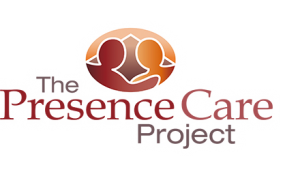About
Overview
Registration open: Mindfulness-Based Dementia Care program. Learn more or sign up now!
What Is the Presence Care Project?
The Presence Care Project is a nonprofit organization that offers mindfulness-based programs with the goal of promoting greater ease, enhanced well-being, and resilience for care partners of people living with dementia. Presence Care programs include the evidence-based Mindfulness-Based Dementia Care program designed specifically to meet the unique challenges of caring for a person with dementia.
What Is Mindfulness?
Mindfulness is the awareness that arises when we pay attention in a particular way – on purpose, to the present moment and without judgment. —Jon Kabat-Zinn
We spend much of our time on autopilot — moving through our lives with our bodies being in the present moment, but our minds being elsewhere. When we are on autopilot, we are lost in our thoughts, very often focused on imagining the future or reviewing the past. Did you ever realize that the future is only a concept, an idea that hasn’t happened yet, and that the past is gone and is now only a memory? So where is life most real? In the present moment. It’s really the only moment we actually have. Mindfulness helps us to train our attention to move out of our imaginings and memories and to experience the present moment, which is often far more welcoming than worries about the future, and regrets about the past.
In the process of paying attention to this moment, right here, we can become aware of the habits of mind that we have developed over our lifetime, many of which do not serve us well — judgments, doubts, or self-critical thoughts. These patterns of thinking often get in the way of our ability to respond effectively to the difficulties that we encounter in life, making them even more painful than they would otherwise be. With mindfulness practices, we develop an awareness of what is going on in each moment and learn to shift our attention towards thoughts and actions that are wiser and more compassionate. This shift helps us to find ease and recharge our battery when it gets depleted. In this way, we are strengthening the resilience that is so important for the care partnering experience.
Why Mindfulness and Dementia Care?
We can’t stop the waves, but we can learn how to surf. —Jon Kabat-Zinn
Caring for someone living with mild cognitive impairment or dementia is challenging. As care partners, we often become lost in worries about the future or lost in wishes for the past to return or regrets over the past.
Communication can become more challenging, and we often struggle to understand the person’s behavior. Even when we understand the effects of dementia on the brain, we may still struggle to support the person we are caring for in the way they need. We experience frustration, anger, confusion, and grief at times. We can focus so much on what is challenging that we overlook the wonderful moments and connections that are happening.
We can also end up focusing so much on the person with the illness and their needs that we forget our own needs and this can lead to significant stress and stress-related physical and emotional conditions. Mindfulness helps us recognize our needs and begin to address them.
When we develop mindful awareness, we can be more fully present with our care partner. We become more aware of what happens in ourselves during care exchanges and become more attuned to the person in our care. We learn to “catch” the early signs of distress within ourselves and our care partners. We can then use this information to pause and choose our response, rather than react impulsively. This helps us better manage painful feelings like impatience, irritability, fear, anger and hopelessness, and helps us to minimize conflict in the care partnering relationship. We grow more emotional stability and we become better able to compassionately and creatively meet the needs of the person living with dementia.
Our Mission: The Presence Care Project is a nonprofit organization with the mission to promote greater ease — less stress and greater well-being — in dementia care, both at home and in care communities.

